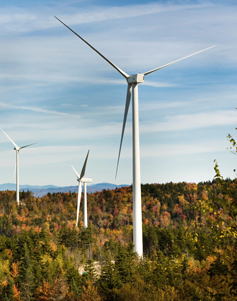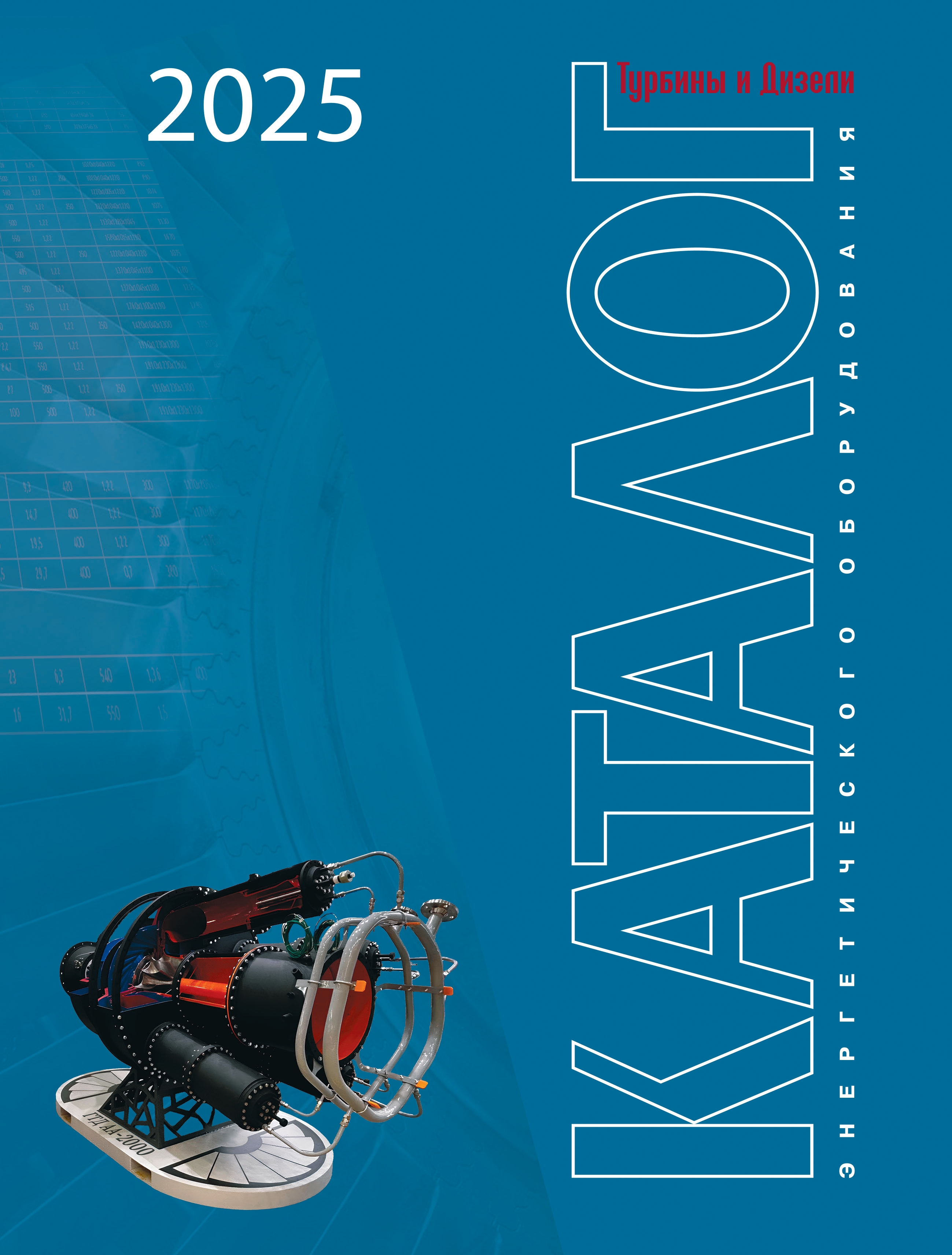Новости
Siemens Energy has successfully completed the first test phase with its CO2 capture process in a pilot facility at the Staudinger power plant operated by E.ON. With its innovative and particularly ecofriendly process the company is setting new benchmarks in CO2 capture in fossil-fueled power plants. Process efficiency, the long-term chemical stability of the scrubbing agent and emissions were investigated in the pilot facility under real power plant conditions. After over 3,000 operating hours since commissioning of the facility in September 2009, it has been demonstrated that the post-combustion capture process developed by Siemens (PostCap) attains a CO2 capture efficiency of over 90 percent with practically zero solvent emissions. The energy consumption is significantly lower than comparable conventional processes.
 Iberdrola Renovables, the world’s leading wind energy company, continues to bolster its presence in the US with the construction of new wind farms. Iberdrola Renovables, the world’s leading wind energy company, continues to bolster its presence in the US with the construction of new wind farms.
Work has just began on the Star Point facility in Oregon which will have installed capacity of 98.7 MW. This farm is in addition to others the company has begun building in recent months: Rugby (North Dakota), with 149 MW; and Cayuga Ridge (Illinois), with 300 MW.
This will give Iberdrola Renovables a total of 547.7 MW under construction in the US. Once operational, these wind farms could avoid the emission of 180.000 tonnes of C02 and supply electricity to some 250,000 average US households a year.
Last week Iberdrola Renovables dedicated the Lempster facility in New Hampshire with installed capacity of 24 MW and which will be able to supply electricity to some 10,000 US households a year.
The company, which is present in 20 states, has 34 wind farms in operation in the country. At 31 March, installed capacity in the US totalled 3,031 MW, 31.4% of the group’s total (9,624 MW).
The US represents one of the main markets for Iberdrola Renovables and is where a large part of its growth is concentrated. Forty-two percent of the company’s project pipeline –the largest in the world with close to 56,000 MW(2), is located there. The company employs more than 800 people in the US.
The Obama administration’s support for renewable energies is one of keys to the sector’s future growth in the country. In addition to the new measures approved as part of the economic stimulus package (which will help financing for projects, among other issues), Congress is expected to pass a new energy act which could include obligatory nationwide renewable portfolio standards.
 Mitsubishi Heavy Industries, Ltd. (MHI) and Mitsubishi Corporation (MC) have agreed with ZeroGen Pty. Ltd. of Australia to participate in the project to build a low-emission integrated gasification combined cycle (IGCC) power generation plant integrated with a carbon capture and storage (CCS) facility, and jointly received an order to implement a feasibility study (F/S) on the project. This will be the world's first commercial-scale IGCC power plant with CCS capability, producing 530 megawatts (MW) of electricity and capturing carbon dioxide (CO2) emissions. The plant is slated to go on-stream in 2015. Mitsubishi Heavy Industries, Ltd. (MHI) and Mitsubishi Corporation (MC) have agreed with ZeroGen Pty. Ltd. of Australia to participate in the project to build a low-emission integrated gasification combined cycle (IGCC) power generation plant integrated with a carbon capture and storage (CCS) facility, and jointly received an order to implement a feasibility study (F/S) on the project. This will be the world's first commercial-scale IGCC power plant with CCS capability, producing 530 megawatts (MW) of electricity and capturing carbon dioxide (CO2) emissions. The plant is slated to go on-stream in 2015.
The ZeroGen project combines a high-efficiency IGCC plant that will generate power using fuel produced through gasification of coal, which is abundant in Australia, and CCS technology, which captures and sequesters CO2 in deep subsurface brine aquifers. The power plant will be built in Queensland, with MHI serving as the exclusive manufacturer, supplier and builder of the IGCC facility, including CO2 recovery and storage systems. MC will coordinate the overall project. ZeroGen, which is wholly owned by the Queensland State Government, will be the project implementation body. In that capacity it will be responsible for the selection of potential sites in Queensland both for the IGCC plant and for a carbon transport and storage area, and will also handle other crucial areas such as infrastructure, coal supply, stakeholder engagement and environmental studies.
For its fuel, the IGCC power generation system uses gas produced by gasification of fine milled coal in a gasification furnace. Electricity is generated by gas-turbine and steam-turbine combined cycle. IGCC delivers higher power generation efficiency than conventional coal-fired power plants and lower emissions of not only CO2 but also SOx, NOx and soot.
In the ZeroGen project, CO2 will be recovered from gas before combustion by gas turbine. In the coal-gasification process, carbon monoxide (CO) and hydrogen gases are produced through oxygen reaction of coal, then CO2 is separated and recovered through the shift reaction of CO and steam.
Siemens Energy has received an order from its Indian licensee Bharat Heavy Electricals Ltd. (BHEL) for the supply of key components for a 1,600-megawatt (MW) coal-fired power plant in India. Delivery of the components is scheduled for late 2011. The order volume amounts to over EUR80 million.
The Siemens scope of supply essentially comprises an SST5-6000 steam turbine, a water-cooled SGen5-3000W generator, an SPPA-T3000 instrumentation & controls system for the turbine-generators, and components for the second turbine-generator.
Coal is India’s most important source of energy. Against the backdrop of climate change cost-effective and climate-compatible coal-based power generation is of decisive importance. “High efficiency levels can be attained with our supercritical steam turbines, which operate at parameters of 580 degree C and 250 bar,” said Fischer. Each percentage point increase in efficiency in a medium-capacity coal-fired power plant brings annual CO2 savings amounting to approximately 80,000 metric tons. That is comparable with the CO2 emissions from around 20,000 mid-range automobiles, each clocking up 20,000 kilometers a year.
The Volvo Group and DEUTZ AG concluded a co-operation agreement in 1998 concerning the development and supply of diesel engines with 4-7 litre displacement for non-automotive and automotive applications. Since then the DEUTZ products have strongly contributed to the successful growth of Volvo’s Medium duty Engine Platform. The agreement has a term of 15 years and it expires at the end of the year 2013.
Although the agreement is set to remain unchanged for the next 4 years, both companies have already now started negotiations on products, volumes and terms for the continuation of their partnership in the period beginning in 2014.
Catalysts for the early start of the negotiations are the long development times for the next exhaust gas emission stages for industrial engines and the decision of Volvo to develop their own automotive engine for the next emission stage Euro 6.
Common projects for industrial engines with the exhaust gas ratings COM II, III A, III B and IV (EPA 2, 3, 4 interim and 4 final) and automotive engines with the exhaust gas ratings Euro 3, 4 and 5 are not affected by this decision and both partners are targeting to further increase sales of engines with 4-7 litre displacement in these segments.
DEUTZ requires its own development resources for the business expansion in the compact engine range up to 4 litre displacement, where two entirely new engine series are developed for the next exhaust emission stages in the off-road segment.
GE Energy and energy developer ECOS Ltd. have announced they plan to demonstrate an innovative, industrial waste-heat recovery system that will dramatically increase the efficiency and output of a 7.2 MW biogas power plant in the eastern Slovenia town of Lendava, near the border with Hungary.
GE’s new pilot Organic Rankine Cycle (ORC) waste-heat recovery system for gas engines is designed to make onsite power plants that use natural gas, landfill gas and other waste gases more cost-attractive to build as countries install more cogeneration and renewable energy capacity to enhance energy security and lower regional emissions.
GE’s new ORC system will allow ECOS to capture more waste heat created by its 7.2 MW Bioplinarna Lendava biogas plant. The extra thermal power will be used to produce steam, which in turn will help generate enough electricity to support 300 European homes without using additional fuel.
The pilot ORC system will be installed on one of the three GE ecomagination-certified Jenbacher J420 biogas engines that have powered ECOS’ Bioplinarna Lendava plant since June 2008. The ORC technology will boost the Jenbacher unit’s electrical efficiency by an estimated five percentage points.
Landfill gas and other renewable biogas projects are among the prime candidates for ORC systems, especially in countries—including those in Europe—that offer high electricity feed-in tariffs.
GE’s new gas engine-ORC technology is a milestone for the global energy industry because for the first time, all of the waste heat from an engine’s exhaust gas and cooling cycle can be fully captured and utilized to drive the power plant’s enhanced steam-creation process.
The new technology was developed by GE’s Munich corporate research center and GE Energy’s Jenbacher gas engine business in Austria.
Alstom has signed an engineering, procurement and construction (EPC) contract with StatoilHydro on behalf of the partners of the European CO2 Technology Centre Mongstad (TCM) for a chilled ammonia (carbonate) CO2 capture plant at TCM in Norway.
The demonstration plant will be the first one of its kind to treat flue gas from a gas-fired power plant.
Alstom will supply and install the demonstration plant, due to be operational in November 2011, which will use the company’s chilled ammonia post-combustion technology to capture CO2 from the flue gases of a combined heat and power plant at Mongstad. It will also treat flue gases from a petroleum processing plant at the nearby Mongstad refinery, which has a CO2 output equal to that of a coal-fired power plant. The test results will consequently be of relevance to both gas- and coal-fired power plants.
The TCM facility at Mongstad is the largest planned demonstration facility of its kind with an annual capacity to capture of up to 100,000 metric tonnes of CO2, of which Alstom’s chilled ammonia technology will have the capacity to capture 80,000 metric tonnes per year, the equivalent of 40 MWt, or equivalent to the annual C02 emissions of approximately 33,000 cars.
The CO2 demonstration project is particularly significant given the importance of Norway’s role as a gas exporter. Norway is the second largest exporter of gas to the EU after Russia, supplying more than 15% of the European gas market.
Alstom is at the forefront of carbon capture technology development. In recent months, as part of its multi-product strategy, the company has announced agreements with AEP, The Dow Chemical Company, E.ON, PGE Elektrownia, StatoilHydro, Total, TransAlta, Vattenfall and We Energies to test CO2 capture technologies in Europe and North America. To date, Alstom has started operation at several CO2 capture pilot projects, including projects with We Energies in the USA, E.ON in Sweden and Vattenfall in Germany.
|


